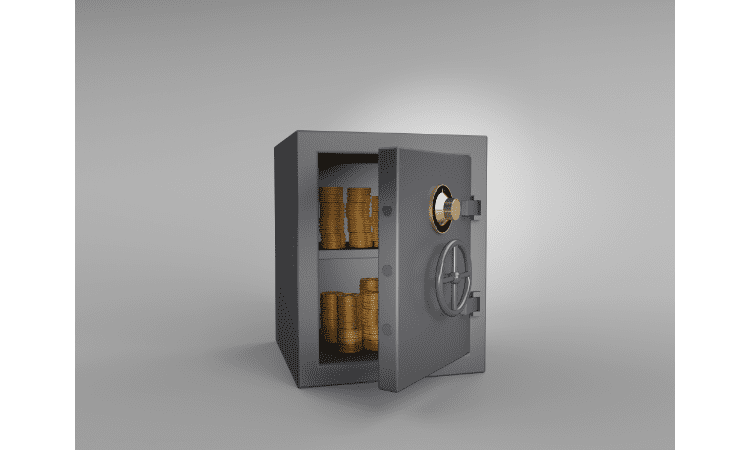
Cryptocurrency is a form of digital currency that can be used to make purchases or traded like stocks or other investments. It’s similar to regular money except it doesn’t exist in physical form and isn’t issued by a government, which are two main differences between cryptocurrency and traditional currency. Cryptocurrency operates independently from banks, governments, and any other regulating authorities, but it still has value that people can buy into. In recent years, more financial institutions have begun integrating cryptocurrency into their trading systems because of the way it allows investors to capitalize on the growing value of certain assets.
What is cryptocurrency?

Cryptocurrency is a digital currency. It’s based on cryptography, meaning it uses advanced math to control the creation of new units, and to verify the transfer of funds. Cryptocurrency isn’t controlled by any central authority like a bank or government; instead, it relies on computers all over the world that collectively agree on its value. This makes cryptocurrency less vulnerable to censorship and fraud because it doesn’t have a single point of failure: when one computer fails, others can keep processing transactions using the same mathematical formula as before.
Cryptocurrency is also decentralized—it doesn’t rely on any physical asset to back up its value; rather, it relies entirely on trust from people who use it as money (or “crypto-valuables,” as some people call them). The more people who use crypto-valuables like Bitcoin or Ethereum (read this article for more information), the higher they’ll be worth relative to other forms of money like dollars or euros—and vice versa!
Cryptocurrency examples

- Bitcoin is the first and most popular cryptocurrency. It’s also the highest valued, with a market cap of over $200 billion USD.
- Ethereum is used to create smart contracts and decentralized applications on top of its blockchain network.
- Ripple is used as an international payment system for banks to transfer money across borders instantly, although it’s not meant for consumer use in the same way that Bitcoin or Ethereum are.
- Litecoin aims to be lightweight compared to other cryptocurrencies like Bitcoin, which can lead to faster transactions (although this may vary depending on how many people are using it at once).
- Stellar aims at being “the world’s new financial system,” using its platform as a way for institutions and individuals alike get access to low-cost financial services through their partnerships with IBM and Deloitte among others
How does cryptocurrency work?

There are a few different ways to get started with cryptocurrency, but the most common is to buy it. To buy, you’ll need to know where and how to exchange your fiat currency (dollars, euros) for digital money. The most popular place is Coinbase—an online exchange service that makes buying and selling crypto easy. After you’ve purchased some Bitcoin or Ether (more about these below), you can then transfer your coins into one of several wallets that support cryptocurrency.
You can also earn cryptocurrency by participating in apps like BitMaker or Earncrypto, which allow users to earn free digital money by completing tasks such as downloading apps or watching ads on their website. Once you have some digital currency stored in your account, the next step is exchanging it for goods and services online through an online marketplace called Openbazaar (for legal goods only). Or if you’re looking for something less legitimate than drugs on Dark Web markets like Silk Road 3…
How to buy cryptocurrency

You can easily buy cryptocurrency with a credit card or debit card. You can also use your bank account to make a purchase, or even cash in person at a Bitcoin ATM. If you already have some cryptocurrency and want to exchange it for another cryptocurrency, this is easy too!
If you’re interested in learning more about how to get started buying and selling bitcoin, we’ve put together an extensive guide that covers everything from choosing the best wallets and exchanges to understanding the risks of investing in cryptocurrencies.
How to store cryptocurrency

A cryptocurrency wallet is a software program that stores private and public keys and interacts with various blockchain to enable users to send, receive and store digital currency. Cryptocurrency wallets are used to store the public addresses and private keys of your cryptocurrency. The wallet will also allow people to buy or sell cryptocurrencies through an exchange service on behalf of the user.
Many people who get involved in cryptocurrency trading use exchanges for their transactions because these exchanges are more secure than other options like keeping money in a bank account or even holding bitcoins yourself.
What can you buy with cryptocurrency?
You can use cryptocurrency to buy goods and services.
You can use cryptocurrency to buy goods and services—both online and in person.
You can also use cryptocurrency to pay for things with a credit card.
Cryptocurrency fraud and cryptocurrency scams

Cryptocurrency fraud is a serious issue, and it’s growing. Many criminals are taking advantage of the hype surrounding digital money to defraud investors through cryptocurrency scams or Ponzi schemes.
The rapid rise in the value of bitcoin and other cryptocurrencies like Ethereum has created a new class of victims who have been duped into thinking they would strike it rich by investing in virtual assets.
These people are often unaware that their funds could be wiped out if their supposedly secure cryptocurrency wallets are hacked, or if exchanges suddenly shut down without warning (as happened with Mt Gox).
Is cryptocurrency safe?
The cryptocurrency market is still new, and it can be difficult to find trustworthy information. If you’re new to investing in cryptocurrency, it’s important that you do your research before making any investments. Make sure that the website you’re using has a good reputation and reviews from other users. You should also carefully consider what type of wallet service they offer, as this will be the place where your digital currency will be stored after purchase.
A few things to look out for: fraudsters who pose as legitimate investors or brokers who are actually scammers; fake websites designed to steal personal information from customers; malware programs designed as “coins” but instead intended for stealing data; or even “exit scams” where criminals run away with money paid by users for services never rendered.
The safest way to invest in cryptocurrencies is by purchasing them directly from another individual through an exchange site (like Coinbase). This way there are no middlemen involved so less chance of fraud happening when buying/selling coins through these methods since no one needs access except those involved directly in transactions taking place between parties involved directly with each other via peer-to-peer interactions only – there’s no room left open here where outsiders might try stealing something from someone else because everything happens between just those two people making purchases together.”
Conclusion
Cryptocurrency is not a get-rich-quick scheme. The prices of cryptocurrency can vary wildly and have, in the past, seen huge percentage swings in value over short periods of time. This means that if you’re going to buy cryptocurrency, you should be prepared to hold it—and not just for a few minutes while waiting for its value to go up again. Cryptocurrency is also incredibly volatile and unpredictable, making it extremely risky if you don’t know what you’re doing. That doesn’t mean all hope is lost: with our guide, you’ll have everything you need to start trading and using cryptocurrencies safely—but only if it really is safe for you personally in the first place!











